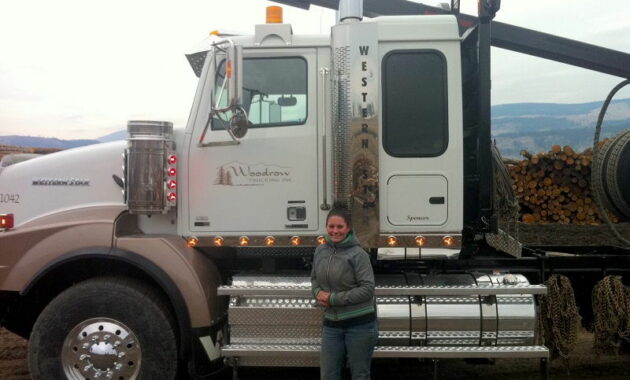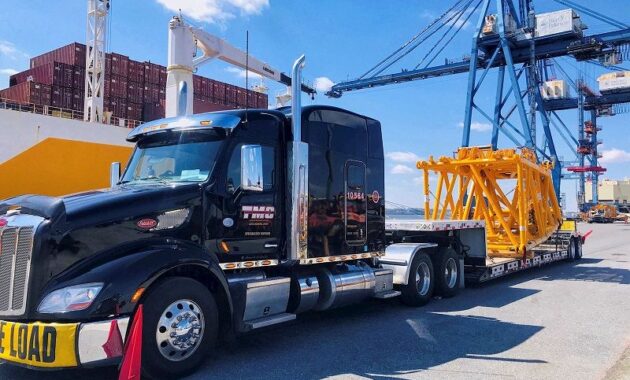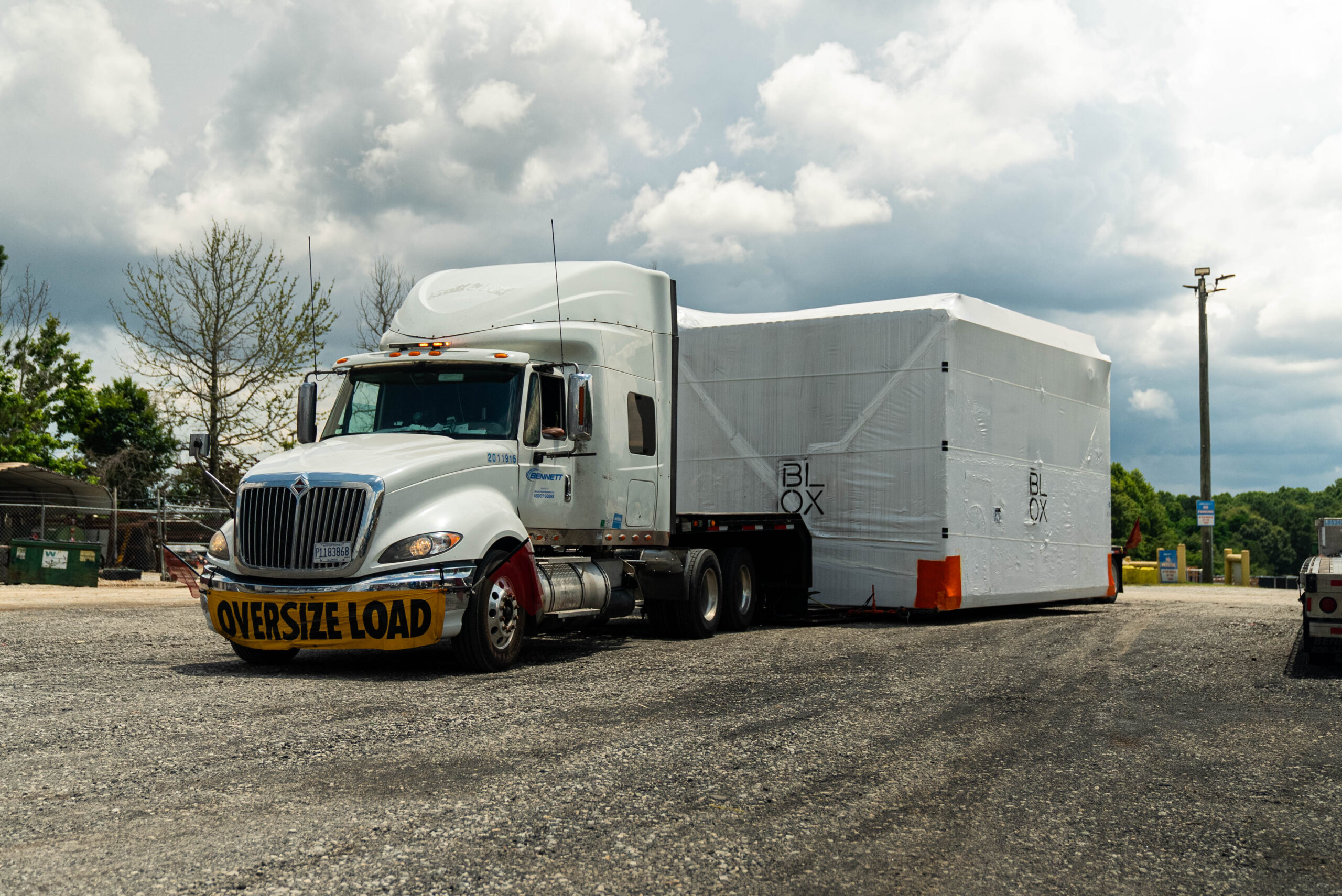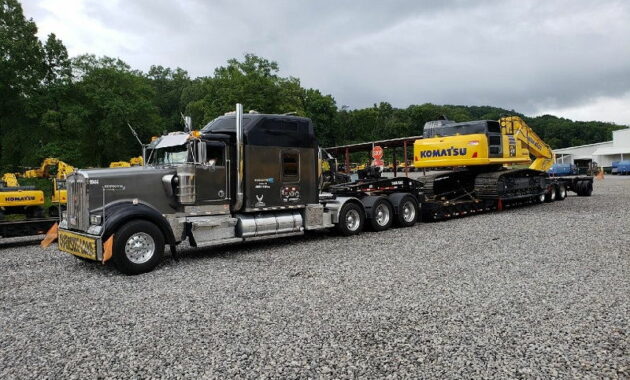Owner Operator Heavy Haul Trucking Jobs: Your Comprehensive Guide to a Niche of High Rewards cars.truckstrend.com
The open road has always called to a certain breed of individual – those who value independence, possess a strong work ethic, and aren’t afraid of a challenge. For many, the dream of being their own boss culminates in becoming an owner-operator in the trucking industry. But within this vast sector lies a specialized, highly rewarding, and often thrilling niche: heavy haul trucking.
Owner operator heavy haul trucking jobs are not for the faint of heart. They involve transporting oversized and overweight loads that regular freight carriers can’t handle – think massive construction machinery, towering wind turbine components, or industrial plant modules. It’s a field that demands exceptional skill, meticulous planning, and significant investment, but in return, it offers some of the highest earning potentials and the ultimate freedom of being an independent business owner. This comprehensive guide will delve deep into what it takes to succeed in this demanding yet lucrative profession, providing you with the insights and practical advice needed to navigate this specialized world.
Owner Operator Heavy Haul Trucking Jobs: Your Comprehensive Guide to a Niche of High Rewards
What Defines Heavy Haul Trucking?
Heavy haul trucking, often referred to as specialized transport or over-dimensional freight, is the logistics of moving freight that exceeds standard legal limits for weight, width, height, or length. Unlike typical dry van or flatbed operations, heavy haul requires specialized equipment, extensive permitting, and often, pilot cars or escorts to ensure safe transit.
The types of loads are diverse and impressive:
- Construction Equipment: Cranes, excavators, bulldozers, dump trucks.
- Industrial Machinery: Transformers, generators, manufacturing plant components.
- Energy Sector Components: Wind turbine blades and tower sections, oil and gas drilling equipment.
- Infrastructure Materials: Bridge beams, large pipes, pre-fabricated structures.
- Aerospace & Defense: Aircraft parts, military vehicles.

As an owner-operator in this field, you’re not just a driver; you’re a logistics expert, a safety manager, and a problem-solver, orchestrating complex movements from origin to destination.

The Lure of the Open Road: Benefits of Owner Operator Heavy Haul
The decision to become an owner-operator in heavy haul is often driven by a desire for greater control and financial reward. Here are the primary benefits that attract seasoned truckers to this niche:
Financial Independence & High Earning Potential
Heavy haul loads command premium rates due to their complexity, specialized requirements, and the limited number of carriers capable of handling them. While general freight owner-operators might gross $150,000-$250,000 annually, heavy haul specialists often see gross revenues ranging from $250,000 to over $500,000, with top earners potentially exceeding $700,000 for highly specialized projects. This higher revenue translates to a significantly greater net income for a well-managed business.
Autonomy and Flexibility

As your own boss, you have the freedom to choose your loads, set your own schedule, and decide your routes. This independence allows for a better work-life balance than often found in company driving, enabling you to take time off when needed and focus on the types of jobs that best suit your business model and interests.
Specialization and Niche Market
Heavy haul is a niche market with higher barriers to entry, meaning less competition compared to general freight. This specialization allows you to become an expert in a particular type of transport, building a reputation that attracts high-value clients and long-term contracts.
Professional Growth and Challenge
Every heavy haul job is a unique puzzle, requiring careful planning, precise execution, and problem-solving skills. This constant challenge fosters professional growth and keeps the work engaging, moving beyond the routine of standard freight.
Navigating the Journey: Essential Steps to Becoming a Heavy Haul Owner Operator
Embarking on a career as a heavy haul owner-operator requires meticulous planning and significant investment. Here’s a step-by-step guide:
1. Gain Experience and Licensing
Before even thinking about heavy haul, you need substantial experience. Most successful heavy haulers recommend at least 3-5 years of over-the-road (OTR) experience, preferably with flatbed or specialized freight. You will need a Class A Commercial Driver’s License (CDL A). While specific heavy haul endorsements don’t exist, a clean driving record and a strong safety history are paramount. Familiarity with complex load securement is critical.
2. Business Formation and Authority
Establish your business entity (e.g., Sole Proprietorship, LLC, S-Corp) and obtain an Employer Identification Number (EIN) from the IRS. You’ll need to apply for your own Motor Carrier (MC) number and USDOT number through the Federal Motor Carrier Safety Administration (FMCSA) to operate under your own authority. This process involves passing a safety audit and demonstrating financial responsibility.
3. Equipment Acquisition
This is often the most significant investment. Heavy haul requires specialized trucks and trailers:
- Trucks: Often tri-axle or quad-axle tractors, designed for heavier gross vehicle weights (GVW) and equipped with powerful engines and specialized transmissions. New trucks can cost $150,000 – $250,000+, while used options vary widely.
- Trailers:
- Removable Gooseneck (RGN) Lowboys: Essential for low-clearance heavy equipment, allowing the front to detach for drive-on loading.
- Flatbeds: High-capacity versions for oversized but not necessarily low-clearance loads.
- Multi-Axle Combinations: Modular trailers that can be configured with numerous axles (up to 13 or more) to distribute extreme weight.
Costs range from $50,000 for a used standard lowboy to well over $200,000 for new, specialized multi-axle systems. Consider financing options, leases, or purchasing used equipment to start.
4. Permits and Regulations Mastery
This is the most complex aspect of heavy haul. Every state has different regulations for weight, dimensions, and routes. You’ll need:
- Over-dimensional Permits: Required for any load exceeding standard legal limits. These are route-specific and often involve detailed engineering analyses.
- Pilot Cars/Escorts: Often mandatory for extremely wide or long loads, requiring certified escorts at the front and rear.
- Route Surveys: For highly complex loads, a physical survey of the route might be necessary to identify obstacles like low bridges, power lines, or narrow turns.
- Hours of Service (HOS) & ELDs: Full compliance with federal HOS regulations is mandatory, typically tracked via Electronic Logging Devices (ELDs).
Many owner-operators utilize third-party permit services to manage this intricate process.
5. Comprehensive Insurance
Due to the high value and risk associated with heavy haul, insurance costs are substantial. You’ll need:
- Primary Liability: Covers damage or injuries to third parties.
- Cargo Insurance: Essential for covering the high value of the specialized loads you transport.
- Physical Damage: Covers your truck and trailer.
- Bobtail/Non-Trucking Liability: Covers you when operating without a load or for personal use.
- Workers’ Compensation: If you plan to hire drivers or helpers.
Expect to pay significantly more than general freight carriers, often $15,000 – $30,000+ annually.
6. Finding and Pricing Loads
- Load Boards: Specialized heavy haul load boards (e.g., DAT, Truckstop.com, Syfan Transport) are crucial.
- Brokers: Develop relationships with reputable heavy haul freight brokers.
- Direct Shippers: Building direct relationships with manufacturers, construction companies, or energy firms can eliminate broker fees and lead to consistent work.
- Pricing: Factors include weight, dimensions, distance, required permits and escorts, fuel costs, time constraints, route complexity, and market demand. Always factor in all operating costs and a reasonable profit margin.
The Road Ahead: Challenges and Solutions
While lucrative, heavy haul owner-operator jobs come with unique challenges:
1. High Upfront Costs
Challenge: The initial investment in specialized equipment, permits, and insurance is substantial, creating a high barrier to entry.
Solution: Start with a solid business plan, explore financing options from reputable lenders, consider leasing equipment initially, or purchase well-maintained used equipment to reduce the initial outlay. Build a robust emergency fund.
2. Complex Regulations & Permitting
Challenge: Navigating the constantly changing and state-specific regulations for oversized/overweight loads is a full-time job in itself.
Solution: Invest in a reliable permit service that specializes in heavy haul. Stay updated through industry associations and regulatory bodies. Develop strong organizational skills to manage paperwork.
3. Maintenance & Downtime
Challenge: Specialized heavy haul equipment is subject to extreme stress and requires specialized, often costly, maintenance. Downtime can lead to significant financial losses.
Solution: Implement a rigorous preventive maintenance schedule. Partner with experienced mechanics who understand heavy haul equipment. Maintain a cash reserve to cover unexpected repairs and lost revenue during downtime.
4. Market Fluctuations
Challenge: Demand for heavy haul services can be tied to specific industries (e.g., construction, energy) and thus susceptible to economic downturns.
Solution: Diversify your client base across different sectors. Build strong relationships to secure long-term contracts. Maintain financial reserves to weather slower periods.
5. Physical & Mental Demands
Challenge: Long hours, complex logistics, stress from high-value cargo, and periods of isolation can take a toll.
Solution: Prioritize work-life balance. Maintain a healthy lifestyle, stay connected with family and friends, and seek support when needed. Consider forming alliances with other owner-operators for mutual support.
Mastering the Craft: Tips for Success
To truly thrive as a heavy haul owner-operator, consider these tips:
- Network Relentlessly: Build strong relationships with brokers, shippers, other owner-operators, and even permit service providers. Referrals and repeat business are invaluable.
- Invest in Knowledge: Continuously educate yourself on evolving regulations, new equipment technologies, and best practices in load securement.
- Maintain Equipment Meticulously: Your truck and trailer are your livelihood. Regular, proactive maintenance prevents costly breakdowns and ensures safety and compliance.
- Master Load Securement: This is non-negotiable. Improper securement can lead to catastrophic accidents, fines, and loss of business. Get certified and continuously refine your skills.
- Customer Service Excellence: Be professional, communicate clearly, and deliver on time. Satisfied clients are your best advertisement.
- Financial Discipline: Track every expense, manage your budget, and plan for taxes. Consider hiring an accountant specializing in trucking.
- Embrace Technology: Utilize ELDs, GPS tracking, and load board apps efficiently. Explore route optimization software.
Owner Operator Heavy Haul Trucking Jobs: Financial Overview (Estimated Annual Ranges)
| Category | Description | Estimated Annual Range (USD) | Notes




